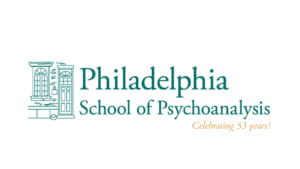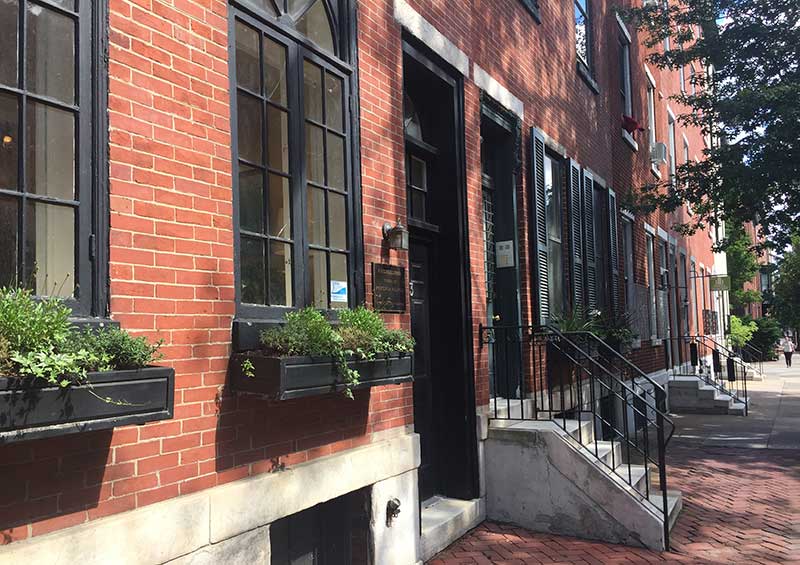PSP’s Values
At the Philadelphia School of Psychoanalysis (PSP), we are dedicated to fostering an inclusive and dynamic community grounded in the principles of psychoanalytic education, clinical practice, and social responsibility. Our core values guide us as we navigate the complexities of modern society and strive for excellence in all our endeavors:
1. Commitment to Lifelong Learning: We believe in the continual personal and professional growth of our members, fostering an environment that encourages ongoing education, critical thinking, and intellectual curiosity.
2. Diversity, Equity, and Inclusion: We value the richness that diverse perspectives bring to our community. We are committed to creating a climate of purposeful inclusion, addressing systemic inequalities, and promoting social justice across all facets of our organization.
3. Professional Ethics and Integrity: We uphold the highest standards of ethical behavior and integrity in our clinical practices, research, and educational programs. Our commitment to professional ethics ensures that we serve our community with respect, transparency, and accountability.
4. Collaborative Leadership: We believe in the power of collaborative leadership to drive innovation and excellence. By nurturing leadership skills across all levels of our organization, we empower individuals to take initiative, inspire others, and contribute to the collective success of our community.
5. Community Engagement: We are dedicated to serving our local and global communities through accessible psychoanalytic services, telehealth and distance learning initiatives, and community partnerships. Our efforts aim to enhance mental health and well-being, particularly for underserved and marginalized populations.
6. Innovation and Adaptability: In response to the evolving landscape of psychoanalysis and mental health, we embrace innovation and adaptability. Our commitment to expanding online education, telehealth services, and new programmatic offerings reflects our readiness to meet the emerging needs of our learners, clients, and the broader society.
7. Support and Well-being: We prioritize the well-being of our professional community and clients. By fostering a supportive and compassionate environment, we ensure that everyone in our community feels valued, heard, and empowered to thrive.
Together, these values shape our identity and drive our mission to develop and sustain a strong psychoanalytic community. We are dedicated to building a future where psychoanalysis continues to be a vital force in understanding the human mind, addressing social phenomena, and promoting mental health.
PSP’s Vision
At the Philadelphia School of Psychoanalysis (PSP), we envision a future where psychoanalytic thought and practice profoundly enrich individual lives and society at large. We aspire to:
1. Be a Leader in Psychoanalytic Education: Expand our reach and impact by offering innovative and accessible psychoanalytic education programs, attracting diverse and global learners.
2. Advance Mental Health Services: Enhance our clinical practice by integrating cutting-edge telehealth services and expanding our offerings to meet the needs of underserved and marginalized communities, ensuring high-quality mental health care for all.
3. Promote Diversity, Equity, and Inclusion: Lead the psychoanalytic field in addressing systemic racism and other forms of inequality, fostering a climate of purposeful inclusion, and ensuring that our community reflects the diverse society we serve.
PSP’s Philosophy of Training
PSP’s philosophy of training begins with Freud’s definition of psychoanalysis as “any line of investigation which takes transference and resistance as a starting point of its work.” The curriculum therefore encompasses the broad spectrum of psychoanalytic tradition including classical analysis, ego and self psychology, object relations, contributions of Ferenczi, Klein, Reich, Sullivan and many others who have expanded upon or modified Freud’s original discoveries.
The School focuses on the theory of treatment, in particular on the contributions of the Modern Analytic School of thought developed by Dr. Hyman Spotnitz and others. The treatment approach is comprehensive and pragmatic, developing interventions that expand the range of people and groups who can be helped successfully by psychotherapeutic means. Contributions of Dr. Hyman Spotnitz that are of particular interest at PSP include:
- The detailed analysis of narcissistic transference, countertransference and resistances found in all patients and therapists.
- Use of a wide range of interventions which are maturational with people who do not benefit from, or who are damaged by interpretive interventions.
- The importance of determining when a patient or group of patients are emotionally ready for a particular kind of intervention.
These principles are also applied to the education and training offered at PSP. While most courses emphasize didactic learning, many of our instructors incorporate aspects of group process, and as such provide the student with an opportunity to learn the practice of psychotherapy in a more effective way than they would at most universities or other institutions.
PSP does not discriminate with regard to race, color, national origin, ethnic origin, gender, sexual orientation, physical disability, age, religion, creed, gender identity, ancestry, marital status, or political affiliation, in any aspect of its psychoanalytic programs, including the selection and assignment of faculty and administrative staff, student admissions, class and field placement, and referral services. In accepting students with a wide range of interests and skills, PSP identifies, nurtures and certifies psychoanalysts with talents and abilities vital to the profession.
History
The Philadelphia School of Psychoanalysis was formed in 1971 with the encouragement of Dr. Hyman Spotnitz and others. It was founded as a sister organization of the Manhattan Center for Advanced Psychoanalytic Studies (now Center For Modern Psychoanalytic Studies). Classes were initially held at the Combs College of Music in the Germantown neighborhood of Philadelphia. In 1975, PSP became a charter member of the National Association for Accreditation in Psychoanalysis (NAAP). Since the establishment of ABAP (American Board for Accreditation in Psychoanalysis) as an independent accrediting body for psychoanalysts in 1997, PSP has adhered to their requirements for admission, training, and graduation.
Philadelphia School of Psychoanalysis established its present location at 313 South 16th Street in 1975. The beautiful building is located in an historic area in Center City Philadelphia, and is also home to our clinical training facility, the Philadelphia Consultation Center.
Our Current Leadership
For information about our current leadership visit:


